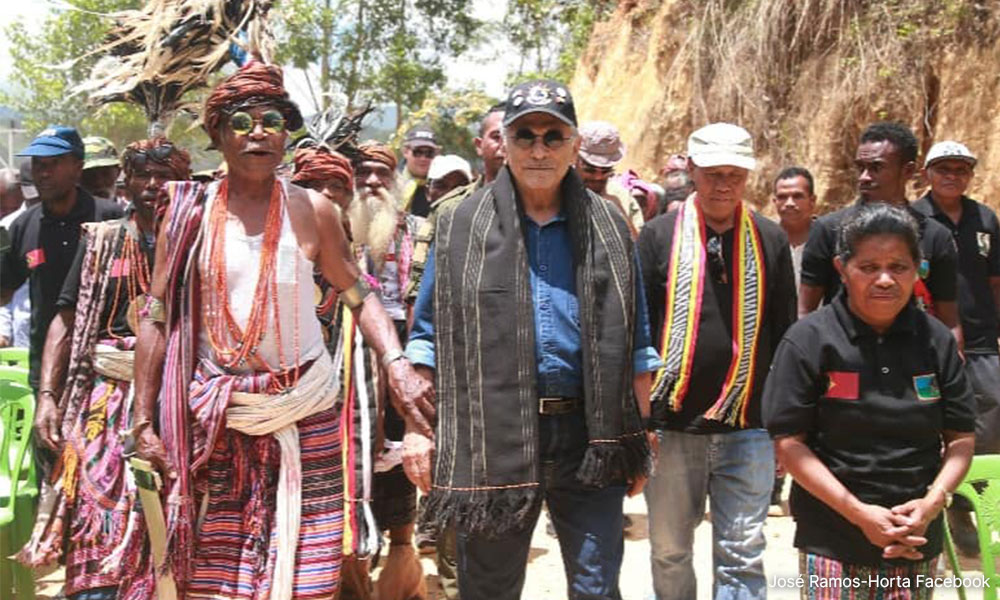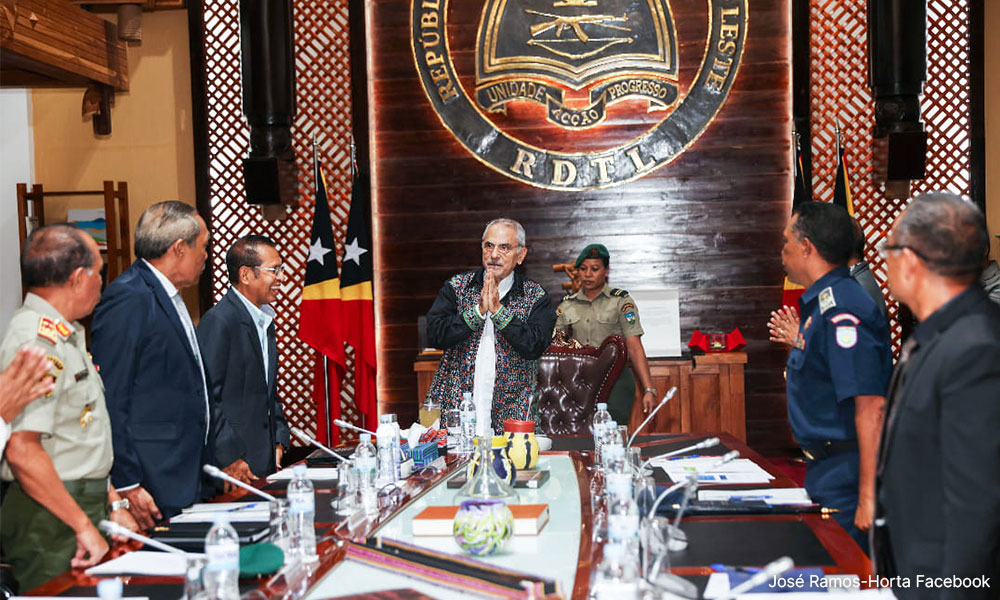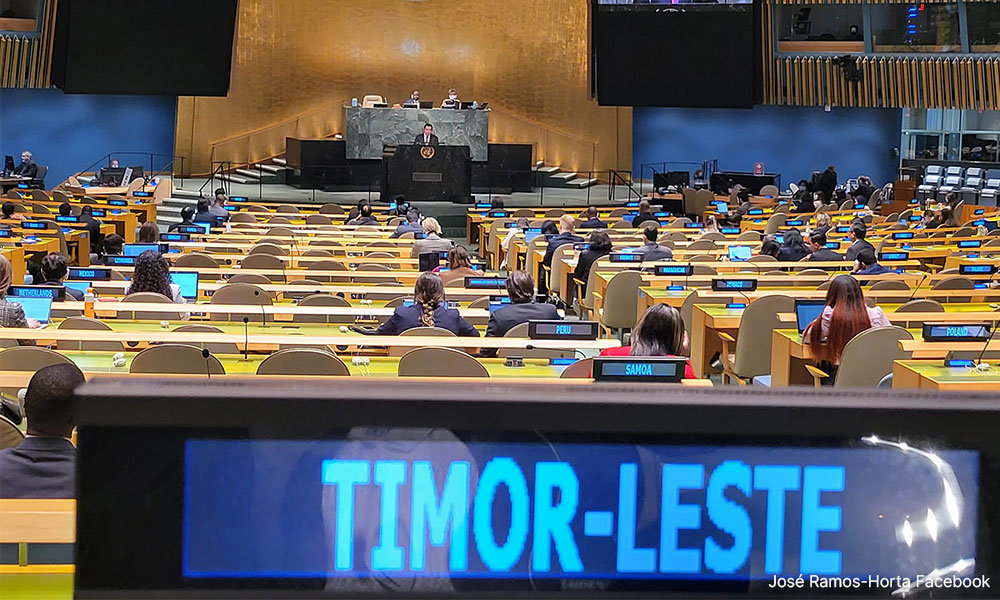INTERVIEW | East Timor hasn’t forgotten the difficult path it faced to independence and is keen to help Asean honour its commitment towards human rights, says its president Jose Ramos-Horta.
Ramos-Horta first served as president from 2007 to 2012 and took office again this May. He pushed for Asean membership for East Timor during his first spell as president and is hopeful that this time, the idea might bear fruit.
“Well, it has taken 10 years. A few weeks ago, I made what was intended to be a humorous or sarcastic comment saying that the road to heaven is shorter and easier than the road to Asean,” he told Malaysiakini in an online interview.
“But when we look back at where we were at during independence (in 2002) and even when we applied in 2011, we were not really prepared in terms of human resources. So while many Asean leaders supported us, that didn’t necessarily mean that we were well equipped to join,” he said.
Ramos-Horta lauded the wisdom of having a waiting period, saying that there were many aspects of life in which his nation was playing catch-up.
“Human resources, adapting our laws and regulations, technology, investments, security. We needed time for all this. We also applied to join the World Trade Organization and we also have to fulfil a very complex web of conditions which we have met,” he added.
Portugal colonised East Timor in the sixteenth century until November 1975, when the Revolutionary Front for an Independent East Timor (Fretilin) declared the territory's independence. But then shortly after, the Indonesian military invaded and occupied the territory.

It finally achieved independence in May 2002 following a bloody decades-long conflict in which tens of thousands are believed to have lost their lives.
While the relationship between Indonesia and East Timor has been one of reconciliation, not every country in Asean has a great human rights record, particularly in Myanmar where a military coup was followed by a bloody crackdown last year.
Evolving Asean
Ramos-Horta said that Asean needs to take leadership in restoring democracy and basic rights in its member nations.
“I commend all members, particularly Indonesia, Malaysia and Singapore, as well as Asean’s secretary-general for the position of principle they have taken in not accepting as fait accompli the military coup that reversed the democratic process in Myanmar.
“This also shows how Asean has changed over the years, it is no longer the Asean of 20 years ago, where the so-called principle of non-interference was sacrosanct, to the point where non-interference meant turning a blind eye to military coups, and violations of human rights and summary and arbitrary executions,” he added.
According to the president, Asean is evolving into a modern 21st century, progressive regional institution that is credible to the extent that when there is an Asean summit, all the big major powers of the world want to participate.
“Asean now has enormous prestige. And it cannot turn a blind eye to a situation like Myanmar. But having said that, there has to be dialogue. And it is a military regime in Myanmar that promised Asean leaders in the first meeting that they would go on the five-point consensus that was reached with Asean.
“We need that dialogue so that prisoners will be released. So there is a return to democracy. We have to work towards that,” said Ramos-Horta.
He said that Asean is “divided”, therefore there is a need to build bridges so the bloc can speak in one voice.
“But we will not have the ambition to lecture anyone on any issue. We want to be wise and humble. To sit and listen, give our opinion and work very quietly with Asean leaders to forge consensus on regional or global issues,” he added.
Working with Indonesia
Over the last 20 years, Ramos-Horta said increasingly, his country’s trade has been more with Asean countries.
“Number one is with Indonesia. I don’t have the figures but around 70 percent of the trade is with Indonesia. Second is with Australia, increasingly with Singapore, and of course with China. But we want to expand trade relations with Malaysia, Cambodia and other countries.

“But because Indonesia is our immediate neighbour, we share a land border and maritime border, it is natural for us to have greater economic trade relations with Indonesia.
“We started from total devastation 20 years ago. Nothing was here and all was destroyed, all burned down. We had people traumatised from 24 years of conflict. We had to take care of the wounds because there were profound divisions in the country and reconciled with Indonesia,” he recalled.
Ramos-Horta said it was fortunate that the Indonesian leaders showed great maturity and accepted the hand of reconciliation, friendship, and normalised relations.
“From day one, we’ve never really turned on each other, and this can happen only with wisdom. It takes two to tango and the Indonesian side accepted it.
“I know the history of conflicts around the world going back centuries in the Balkans, Myanmar, Central America, and the Middle East and some of the tensions and anger last for generations.
“In our case, it ended the moment we achieved independence. The Indonesian president then, Megawati Sukarnoputri, attended the inauguration of our restoration of independence in May 2002. She came in, and we started diplomatic relations right away. There are very few countries in the world that can claim to have done that,” he added.
Children’s welfare
The president is optimistic about his country’s future and believes that he needs to address child poverty.
Ramos-Horta expressed his commitment to working with the government, society, development partners and the UN system to eradicate child poverty.
“In the next five years, we have to resolve the incredible moral and ethical challenge of child poverty, child malnutrition and other related issues.
“In a country like East Timor which has enough financial resources, it is unjustifiable that we have extreme poverty and child malnutrition,” he said.

East Timor also needs to develop its economy but equally focus on agricultural food security, he added.
“But we need to have the right policies and legislation to attract foreign investors. If I were to be fully in charge and I’m not because we have a democracy and we have a government and we have a Parliament- I would make it more or less than a completely free trade situation. Because the less regulation, the fewer laws, it means less corruption and less inefficiency.
“I know many academics and economists, particularly of the left, do not believe in free trade as an instrument to help create a sustainable economy and eliminate poverty if you look at the best Nordic models of social democracy and so on.
“But that took many decades to create a welfare state. We don’t have the resources for that now,” Ramos-Horta explained. - Mkini




No comments:
Post a Comment
Note: Only a member of this blog may post a comment.